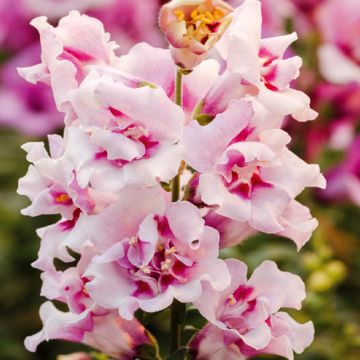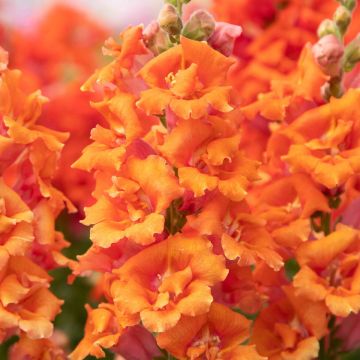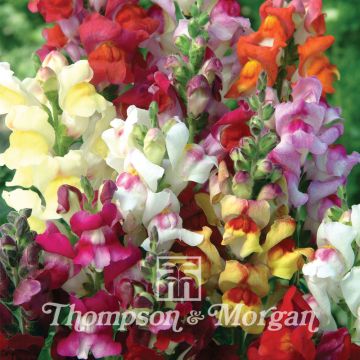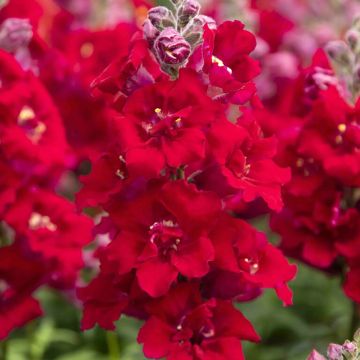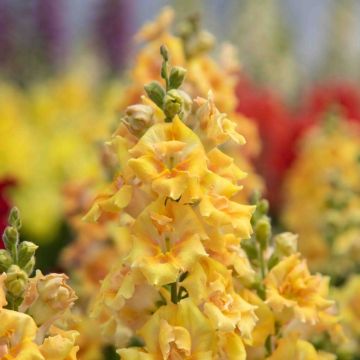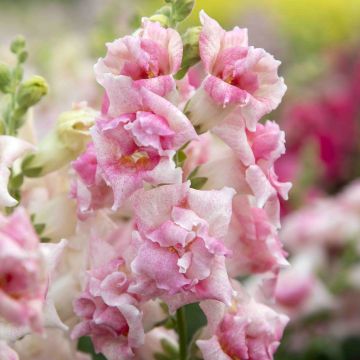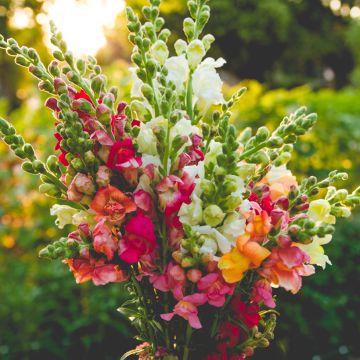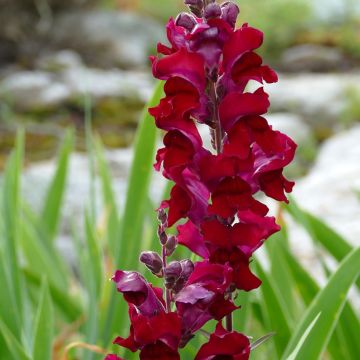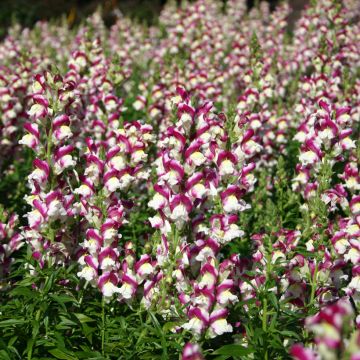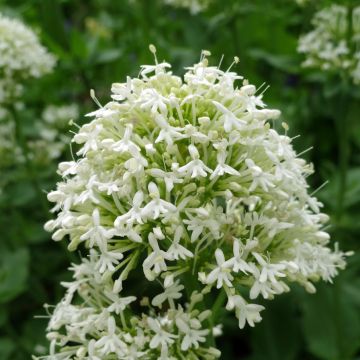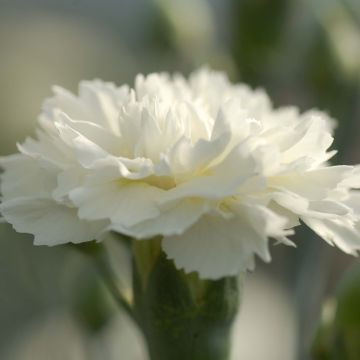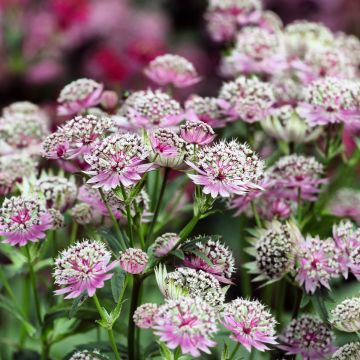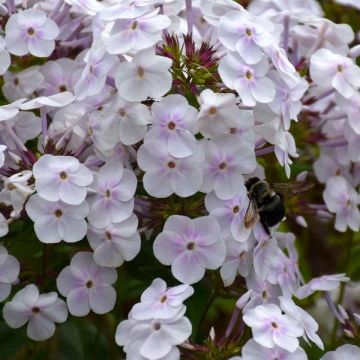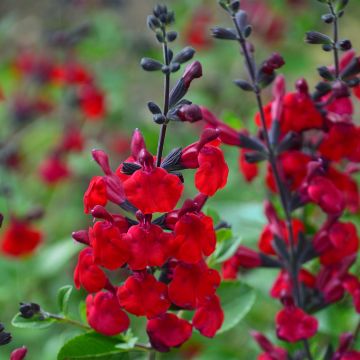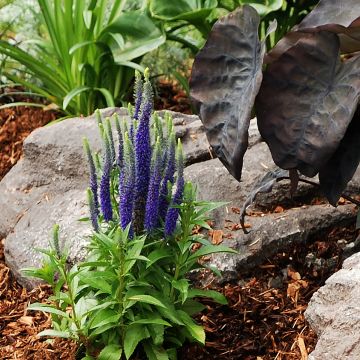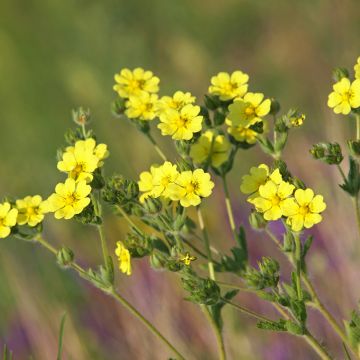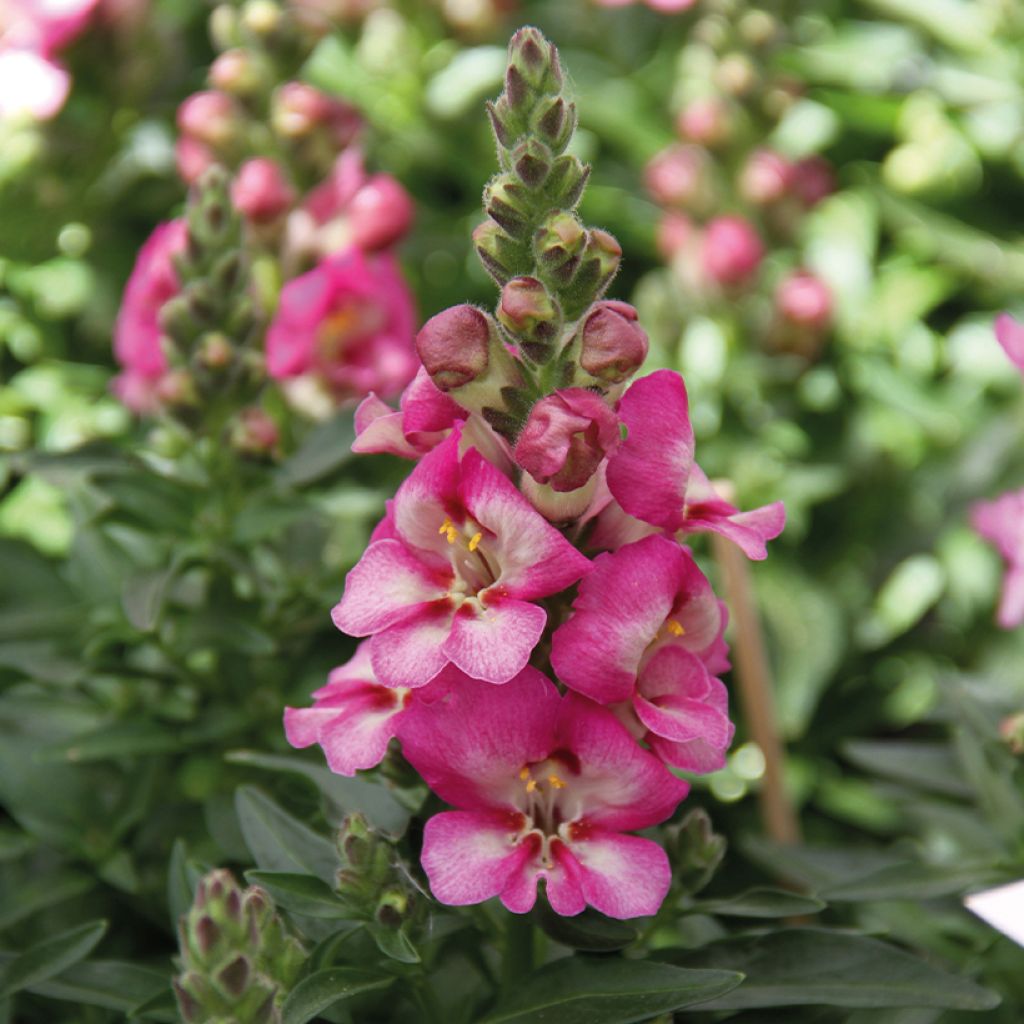

majus Antirrhinum Dazzling Lips Pink
majus Antirrhinum Dazzling Lips Pink
Antirrhinum majus Dazzling Lips® Pink
Snapdragon, Dragon Flowers
Special offer!
Receive a €20 voucher for any order over €90 (excluding delivery costs, credit notes, and plastic-free options)!
1- Add your favorite plants to your cart.
2- Once you have reached €90, confirm your order (you can even choose the delivery date!).
3- As soon as your order is shipped, you will receive an email containing your voucher code, valid for 3 months (90 days).
Your voucher is unique and can only be used once, for any order with a minimum value of €20, excluding delivery costs.
Can be combined with other current offers, non-divisible and non-refundable.
Home or relay delivery (depending on size and destination)
Schedule delivery date,
and select date in basket
This plant carries a 6 months recovery warranty
More information
We guarantee the quality of our plants for a full growing cycle, and will replace at our expense any plant that fails to recover under normal climatic and planting conditions.
Would this plant suit my garden?
Set up your Plantfit profile →
Description
The Antirrhinum majus Dazzling Lips® Pink is a cultivar of snapdragon selected for its early and generous flowering, consisting of large, fragrant flowers, in a range of pink to white. The sturdy stems of this snapdragon are appreciated in the garden as well as in a vase. In addition to its ornamental qualities, it is also a plant that is highly attractive to pollinating insects. It is a rather compact variety, well-perpetual, and well-suited to pot cultivation.
Known in gardens since 1583, the Antirrhinum majus was a favored host in monastery and clergy gardens. This plant, belonging to the Plantaginaceae family, is native to the western Mediterranean basin, where it grows between rocks on the arid slopes of the Midi. In France, it can be found as far as Lozère and Aveyron. There are even plants rooted in the mortar of old walls protecting gardens. Contrary to popular belief, wild snapdragon species as well as certain varieties are perfectly perennial if provided with poor, sandy, rocky soil in full sun, sheltered from cold winds.
The 'Dazzling Lips Pink' snapdragon is a recent selection, part of a series of hybrids (the 'Dazzling Lips') selected for their early, perpetual flowering, large and fragrant flowers, carried by strong stems. It is more biennial than perennial, rarely living for more than two years. In the year following planting, it forms a clump of approximately 50-55 cm (20-22in) in height and 30-40 cm (12-16in) in width. Its upright, sturdy stems are covered in opposite or alternate, lanceolate, entire, glabrous leaves of a medium green colour. These leaves will persist on the plant if the winter is mild. The flowering renews from May-June to September-October, in successive waves. 'Pink' offers solidly built spikes, bearing large tubular-based flowers with undulating lobes. The petals display a fresh pink colour that becomes almost white near the throat. They are highly visited by bumblebees and butterflies. Snapdragons readily self-sow in the garden, in light soil, but not always faithfully compared to the mother plant.
Snapdragons are part of our childhood memories. With their small velvety snout that emits a fragrance when you bury your nose in the flowers, they are plants accessible to all gardeners, easy to install in borders, beds, or containers. In northern regions of the UK and in heavy soil, treat them as annuals, which is of little importance considering their generosity. Large varieties such as 'Dazzling Lips' are perfect for cut flowers, flowering containers, or cottage gardens. For example, associate them with love-in-a-mist, perennial flax, and valerians (Centranthus ruber). Their flower spikes are well highlighted when emerging among bushy perennials like aster cordifolius or ground cover roses, cotton lavenders, 'Powis Castle' artemisias. Once the plant is established and to prolong its flowering, you can regularly remove faded flowers.
Snapdragons get their vernacular name from the particular shape of their flowers, which, when pinched, resemble mouths.
Note: Attention, our plug plants are professional products reserved for experienced gardeners; upon receipt, repot them as soon as possible, in containers, flower beds, or directly in the ground.
Report an error about the product description
Flowering
Foliage
Plant habit
Botanical data
Antirrhinum
majus
Dazzling Lips® Pink
Scrophulariaceae
Snapdragon, Dragon Flowers
Cultivar or hybrid
Other Antirrhinum - Snapdragon
View all →Planting and care
The snapdragons thrive in fertile, well-drained soils, even limestone, well-prepared and in full sun. The tall snapdragon is not very hardy (-8/-10°C (17.6/14°F)); it is therefore often cultivated as an annual or biennial plant, especially in regions where the winter is cold and humid. However, it is not uncommon to see snapdragons withstand several not too harsh winters, but they then become more frequently susceptible to rust. To try to preserve a beautiful variety, protect the plants from severe frost in winter by improving soil drainage (add gravel to your garden soil, slightly raise the planting) and cover the stumps with a thick carpet of leaves or dry herbs: they will sprout again in spring and bloom earlier.
Planting period
Intended location
Care
This item has not been reviewed yet - be the first to leave a review about it.
Similar products
Haven't found what you were looking for?
Hardiness is the lowest winter temperature a plant can endure without suffering serious damage or even dying. However, hardiness is affected by location (a sheltered area, such as a patio), protection (winter cover) and soil type (hardiness is improved by well-drained soil).

Photo Sharing Terms & Conditions
In order to encourage gardeners to interact and share their experiences, Promesse de fleurs offers various media enabling content to be uploaded onto its Site - in particular via the ‘Photo sharing’ module.
The User agrees to refrain from:
- Posting any content that is illegal, prejudicial, insulting, racist, inciteful to hatred, revisionist, contrary to public decency, that infringes on privacy or on the privacy rights of third parties, in particular the publicity rights of persons and goods, intellectual property rights, or the right to privacy.
- Submitting content on behalf of a third party;
- Impersonate the identity of a third party and/or publish any personal information about a third party;
In general, the User undertakes to refrain from any unethical behaviour.
All Content (in particular text, comments, files, images, photos, videos, creative works, etc.), which may be subject to property or intellectual property rights, image or other private rights, shall remain the property of the User, subject to the limited rights granted by the terms of the licence granted by Promesse de fleurs as stated below. Users are at liberty to publish or not to publish such Content on the Site, notably via the ‘Photo Sharing’ facility, and accept that this Content shall be made public and freely accessible, notably on the Internet.
Users further acknowledge, undertake to have ,and guarantee that they hold all necessary rights and permissions to publish such material on the Site, in particular with regard to the legislation in force pertaining to any privacy, property, intellectual property, image, or contractual rights, or rights of any other nature. By publishing such Content on the Site, Users acknowledge accepting full liability as publishers of the Content within the meaning of the law, and grant Promesse de fleurs, free of charge, an inclusive, worldwide licence for the said Content for the entire duration of its publication, including all reproduction, representation, up/downloading, displaying, performing, transmission, and storage rights.
Users also grant permission for their name to be linked to the Content and accept that this link may not always be made available.
By engaging in posting material, Users consent to their Content becoming automatically accessible on the Internet, in particular on other sites and/or blogs and/or web pages of the Promesse de fleurs site, including in particular social pages and the Promesse de fleurs catalogue.
Users may secure the removal of entrusted content free of charge by issuing a simple request via our contact form.
The flowering period indicated on our website applies to countries and regions located in USDA zone 8 (France, the United Kingdom, Ireland, the Netherlands, etc.)
It will vary according to where you live:
- In zones 9 to 10 (Italy, Spain, Greece, etc.), flowering will occur about 2 to 4 weeks earlier.
- In zones 6 to 7 (Germany, Poland, Slovenia, and lower mountainous regions), flowering will be delayed by 2 to 3 weeks.
- In zone 5 (Central Europe, Scandinavia), blooming will be delayed by 3 to 5 weeks.
In temperate climates, pruning of spring-flowering shrubs (forsythia, spireas, etc.) should be done just after flowering.
Pruning of summer-flowering shrubs (Indian Lilac, Perovskia, etc.) can be done in winter or spring.
In cold regions as well as with frost-sensitive plants, avoid pruning too early when severe frosts may still occur.
The planting period indicated on our website applies to countries and regions located in USDA zone 8 (France, United Kingdom, Ireland, Netherlands).
It will vary according to where you live:
- In Mediterranean zones (Marseille, Madrid, Milan, etc.), autumn and winter are the best planting periods.
- In continental zones (Strasbourg, Munich, Vienna, etc.), delay planting by 2 to 3 weeks in spring and bring it forward by 2 to 4 weeks in autumn.
- In mountainous regions (the Alps, Pyrenees, Carpathians, etc.), it is best to plant in late spring (May-June) or late summer (August-September).
The harvesting period indicated on our website applies to countries and regions in USDA zone 8 (France, England, Ireland, the Netherlands).
In colder areas (Scandinavia, Poland, Austria...) fruit and vegetable harvests are likely to be delayed by 3-4 weeks.
In warmer areas (Italy, Spain, Greece, etc.), harvesting will probably take place earlier, depending on weather conditions.
The sowing periods indicated on our website apply to countries and regions within USDA Zone 8 (France, UK, Ireland, Netherlands).
In colder areas (Scandinavia, Poland, Austria...), delay any outdoor sowing by 3-4 weeks, or sow under glass.
In warmer climes (Italy, Spain, Greece, etc.), bring outdoor sowing forward by a few weeks.






























